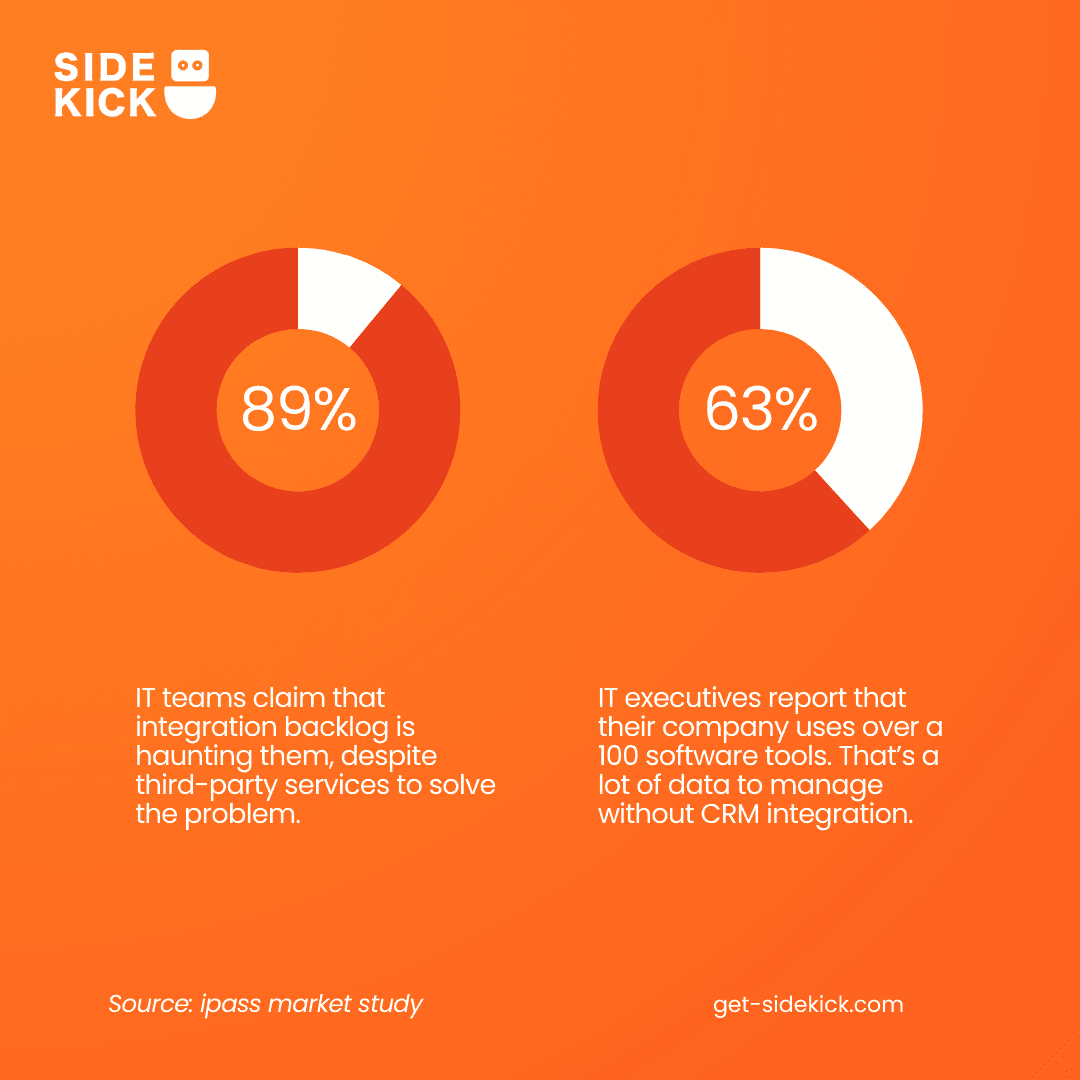CRM Integration to Streamline Sales Automation: A Quick Guide

Have you ever wished that all your business tools could talk to each other, creating a complete and seamless view of your customer interactions? That's the power of CRM integration. In this blog, we're diving into how connecting your CRM with automated sales tools can transform the way you work. We'll show you CRM API Integration, how integrating your CRM system can simplify your processes, improve data accuracy, and enhance customer experiences.
No more tedious switching between different apps and programs. Instead, let's explore practical ways to make your CRM a more efficient, central hub for your business. Join us as we demystify CRM integration and demonstrate how it can make a real difference in your daily work.
What is CRM Integration in Sales?
Imagine your CRM as the central nervous system of your business, connecting with various applications to form a cohesive unit. CRM integration does just that - it links your customer relationship management system with other software tools you use every day. This connection isn't just about data sharing; it's about making your CRM smarter and more efficient.
When your CRM integrates seamlessly with other applications, it automatically performs actions that would otherwise require manual effort. This means less time spent switching between different systems and more time focused on what really matters - your customers and business growth.
With integration, your CRM turns into a powerful hub that holds accurate, up-to-date information about your customers. This hub helps everyone in your company stay informed and aligned, eliminating the confusion that comes from using numerous software tools. Your team gets a complete picture of each customer's journey, leading to better decision-making and more successful sales strategies.
So, why settle for a CRM that just stores data when you can have one that actively works to make your business smarter and more connected?

How do CRM Integrations in Sales Make Your Life Easier?
CRM integrations are not just about connecting systems; they are about transforming the way sales teams work. Let's delve into how these integrations address common sales challenges and significantly ease your team's workload.
Real-Time Data for Enhanced Customer Support
With integrations, your customer support teams always have the latest information at their fingertips. This ensures personalized customer experiences, as sales and support reps can access a complete history of customer interactions with a simple click. Personalized interactions are crucial, as companies using personalization generate 40% more revenue than those that don't. By integrating your CRM with tracking add-ons, you can boost contact management and retention rates.
Timely Alerts and Notifications
Responding quickly to prospect requests significantly increases conversion rates. Integrations enable you to set up alerts to respond to lead actions promptly. Your CRM can notify sales reps via various channels, ensuring they follow up at the perfect time. This means no opportunities get missed, and your customers don’t have to wait days for a response.
Streamlining Email Management
Sales managers spend a considerable part of their day crafting emails. With CRM integrations, like those with Mailchimp, this process becomes more efficient and less prone to errors. These integrations offer email templates and customer data, helping you quickly assemble a sales pitch without the hassle of juggling multiple tabs or worrying about mixing up customer details.
Effective Performance Tracking
Tracking team performance becomes more straightforward with CRM integrations. Tools like Google Calendar integration help in planning and sharing schedules. You can see completed and pending tasks and get insights into customer interactions and touch points. This visibility allows you to monitor your team’s performance and adjust strategies as needed.
Integrating automated sales tools with your CRM system is a straightforward yet powerful way to enhance your business operations. This blog has explored how these integrations streamline work, saving time and effort, and how they can transform your approach to customer relationship management.
Firstly, CRM API Integration cut down on repetitive tasks. By automating processes like email marketing and lead management, your team can focus more on selling and less on admin work. This means more efficient use of your time and resources.
Secondly, these integrations keep your customer data updated in real-time. This ensures that your customer support is always informed and can provide personalized service, leading to happier customers and potentially more sales.
Lastly, the right CRM integrations make it easier to monitor and manage your sales process. You get clear insights into your team's performance and customer interactions, which helps in making informed decisions.
In summary, CRM integrations are all about making your life easier. They simplify your processes, give you valuable insights, and save time so you can focus on growing your business. Whether it's through built-in options or custom solutions, these integrations are an effective way to enhance your CRM API Integration and your team's efficiency.

Want To Dive Deeper?
If your marketing and sales team is struggling to meet quota, its time to give them a Side Kick!